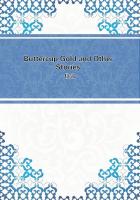Of these three possible reasons for our dislike of things as they are, the first two are perhaps contained within the third. But, to whatever our dislike is due, we have it--Oh! we have it! With the possible exception of Hogarth in his non-preaching pictures, and Constable in his sketches of the sky,--I speak of dead men only,--have we produced any painter of reality like Manet or Millet, any writer like Flaubert or Maupassant, like Turgenev, or Tchekov. We are, I think, too deeply civilised, so deeply civilised that we have come to look on Nature as indecent. The acts and emotions of life und****d with ethics seem to us anathema. It has long been, and still is, the fashion among the intellectuals of the Continent to regard us as barbarians in most aesthetic matters. Ah! If they only knew how infinitely barbarous they seem to us in their ***** contempt of our barbarism, and in what we regard as their infantine concern with things as they are. How far have we not gone past all that--we of the oldest settled Western country, who have so veneered our lives that we no longer know of what wood they are made! Whom generations have so soaked with the preserve "good form" that we are impervious to the claims and clamour of that ill-bred creature--life! Who think it either dreadful, or 'vieux jeu', that such things as the crude emotions and the raw struggles of Fate should be even mentioned, much less presented in terms of art! For whom an artist is 'suspect' if he is not, in his work, a sportsman and a gentleman? Who shake a solemn head over writers who will treat of ***; and, with the remark:
"Worst of it is, there's so much truth in those fellows!" close the book.
Ah! well! I suppose we have been too long familiar with the unprofitableness of speculation, have surrendered too definitely to action--to the material side of things, retaining for what relaxation our spirits may require, a habit of sentimental aspiration, carefully divorced from things as they are. We seem to have decided that things are not, or, if they are, ought not to be--and what is the good of thinking of things like that? In fact, our national ideal has become the Will to Health, to Material Efficiency, and to it we have sacrificed the Will to Sensibility. It is a point of view. And yet--to the philosophy that craves Perfection, to the spirit that desires the golden mean, and hankers for the serene and balanced seat in the centre of the see-saw, it seems a little pitiful, and constricted; a confession of defeat, a hedging and limitation of the soul. Need we put up with this, must we for ever turn our eyes away from things as they are, stifle our imaginations and our sensibilities, for fear that they should become our masters, and destroy our sanity? This is the eternal question that confronts the artist and the thinker. Because of the inevitable decline after full flowering-point is reached, the inevitable fading of the fire that follows the full flame and glow, are we to recoil from striving to reach the perfect and harmonious climacteric? Better to have loved and lost, I think, than never to have loved at all; better to reach out and grasp the fullest expression of the individual and the national soul, than to keep for ever under the shelter of the wall.
I would even think it possible to be sensitive without neurasthenia, to be sympathetic without insanity, to be alive to all the winds that blow without getting influenza. God forbid that our Letters and our Arts should decade into Beardsleyism; but between that and their present "health" there lies full flowering-point, not yet, by a long way, reached.
To flower like that, I suspect, we must see things just a little more--as they are!
1905-1912.















